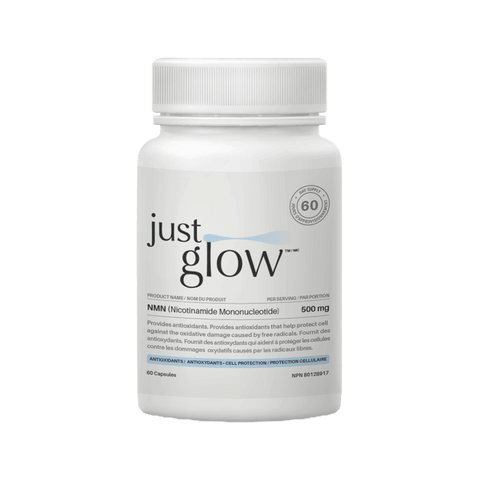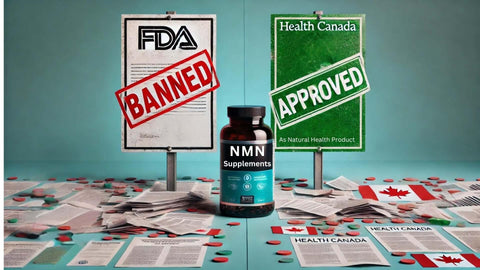Toxicology Study of Nicotinamide Mononucleotide: Safety and Long-Term Effects

Key Takeaways
- NMN is Safe for Long-Term Use: A 90-day study showed no adverse effects in rats at doses up to 800 mg/kg, indicating NMN is safe for extended consumption.
- Low Acute Toxicity Risk: NMN's acute oral toxicity has an LD50 greater than 2000 mg/kg, classifying it as low-risk, even at high doses.
- Non-Mutagenic and Non-Clastogenic: NMN passed mutagenicity and genotoxicity tests, confirming it does not cause genetic mutations or chromosomal damage.
Overview of NMN Toxicology Study: Key Insights
NAD+ plays a crucial role in cellular metabolism, energy production, and DNA repair. As we age, NAD+ levels decline, leading to physiological degeneration and age-related diseases. NMN, a precursor to NAD+, has garnered attention for its potential to restore NAD+ levels. However, comprehensive toxicology studies are needed to confirm its safety.
- Objective: The purpose of this toxicology study was to assess the safety profile of NMN through acute and long-term dosing in rats, as well as mutagenicity tests.
Key Findings of the Toxicology Study
This study evaluated NMN's safety profile across several tests:
- Acute oral toxicity test: NMN has an acute oral LD50 of greater than 2000 mg/kg body weight, showing no significant signs of toxicity.
- 90-day sub-chronic toxicity test: At doses of up to 800 mg/kg, NMN showed no adverse effects in Wistar rats, making it safe for long-term use.
- Mutagenicity tests: NMN was classified as non-mutagenic and non-clastogenic in both in vitro and in vivo tests.
Materials and Methods
Test Compound: Uthever® NMN

- NMN used in this study was Uthever®, a 99% pure version manufactured under GMP conditions.
- The test compound was administered in distilled water to ensure safety in the dosing process.
Acute Oral Toxicity Test
- Objective: To determine NMN's LD50 (the dose at which 50% of the population shows toxic effects).
- Method: Female Wistar rats were given doses up to 2000 mg/kg of NMN.
- Results: No mortality or significant clinical abnormalities were observed.
90-Day Repeated Dose Oral Toxicity Test
- Objective: To assess NMN’s long-term effects over 90 days of repeated dosing.
- Method: Male and female Wistar rats were divided into groups and given 200, 400, and 800 mg/kg doses daily.
- Monitoring: Rats were observed for mortality, body weight changes, food consumption, and clinical pathology.
Mutagenicity and Genotoxicity Tests
Bacterial Reverse Mutation Test
NMN was tested for mutagenic effects using strains of Salmonella typhimurium at concentrations up to 5000 µg/plate.
In Vitro Mammalian Chromosomal Aberration Test
Chinese Hamster Ovary (CHO) cells were exposed to NMN to assess potential chromosomal damage.
In Vivo Mammalian Bone Marrow Chromosomal Aberration Test
Swiss albino mice were tested to observe any chromosomal aberrations.
Results and Discussion

The study showed NMN is well-tolerated with no significant side effects. Animal models displayed no organ toxicity, allergic reactions, or immune response, supporting NMN's safety as a supplement for healthy aging.
Acute Oral Toxicity
A high single dose of NMN showed no toxicity, with no symptoms like vomiting or weight loss. The study confirmed NMN’s safety, with no harmful effects or mortality during the 14-day observation.
90-Day Sub-Chronic Toxicity
Survival and Clinical Observations
No mortality was observed across all dosing groups.
Body Weight and Food Consumption
No significant changes in body weight or food consumption were detected.
Clinical Pathology
Hematological and biochemical parameters showed no significant deviations related to NMN administration. The NOAEL for NMN was determined to be 800 mg/kg body weight.
Mutagenicity and Genotoxicity Tests
Bacterial Reverse Mutation Test
The results confirmed that NMN is non-mutagenic, as no increase in revertant colonies was observed.
In Vitro and In Vivo Chromosomal Aberration Tests
Both in vitro and in vivo tests demonstrated that NMN did not cause any significant chromosomal damage or aberrations.
FAQ’s
What is the purpose of a toxicology study?
The purpose of a toxicology study is to assess the safety of substances by determining their potential harmful effects on living organisms. These studies help identify safe exposure levels, detect risks, and guide regulations to protect public health.
What does a toxicology test for?
A toxicology test checks for harmful substances in the body, such as drugs, chemicals, and toxins. It helps determine exposure levels and potential health risks.
What do you need to study toxicology?
To study toxicology, you'll need a background in biology, chemistry, and pharmacology. A degree in toxicology or related sciences is essential.
Are toxicology studies done in humans?
Yes, toxicology studies are sometimes done in humans, typically in clinical trials, but most are conducted in labs using cells or animals before human testing.
How long do toxicology studies take?
Toxicology studies can take anywhere from a few weeks to several years, depending on the substance and the type of study being conducted.
Conclusion
In conclusion, the toxicology study of Nicotinamide Mononucleotide (NMN) demonstrates promising safety and long-term benefits for those seeking to enhance cellular health and vitality. However, ongoing research is essential to understand its effects fully. If you're interested in exploring high-quality NMN supplements, visit Just Glow to discover our scientifically-backed products that support your wellness journey. Stay informed, stay healthy, and experience the difference NMN can make!Summary
This toxicology study of Nicotinamide Mononucleotide (NMN) is a critical compound in the production of Nicotinamide adenine dinucleotide (NAD+), a molecule vital for various biological processes. With NMN supplements becoming popular for their potential anti-aging and longevity benefits, understanding their safety through a toxicology study is essential. This article explores the findings of an acute and 90-day sub-chronic toxicology study conducted on Wistar rats, alongside mutagenicity tests, to assess NMN's safety profile.





